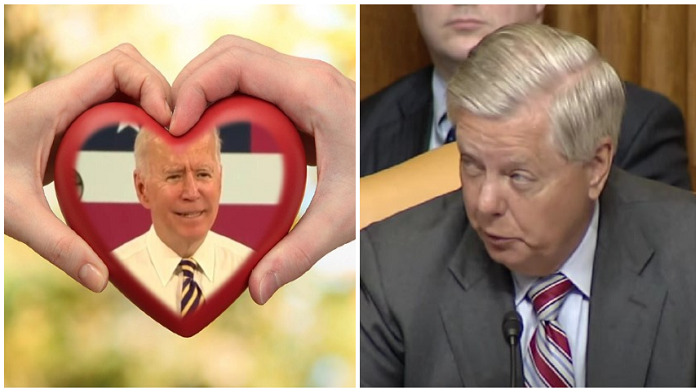Black Label Media, consisting of sisters Molly and Rachel Smith and twin brothers Trent and Thad Luckinbill, have returned to the screen with their calling card: a Benicio Del Toro-led crime thriller.
The independent production and finance company, most known for producing the Sicario films and co-financing La La Land, is set to release Grant Singer’s Reptile this Friday on Netflix, and it’s another example of Black Label’s commitment to preserving mid-budget films, as well as genres that are less prioritized now by the major studios.
Knowing how Del Toro works from their previous two Sicario films, Black Label teamed him up early with Reptile co-writer/director Singer and co-writer Benjamin Brewer, so that he didn’t have to present his own rewrites and suggestions during production. And due to the pandemic shutdown, the added collaboration time has now resulted in Del Toro’s first co-writing credit on a feature film.
“Going into [Sicario: Day of the Soldado], we wanted to get [Del Toro] in early and incorporate his thoughts, and not wait until we were shooting a movie to have that conversation. In the case of Reptile, we wanted to do the same thing again,” Trent Luckinbill tells The Hollywood Reporter. “We started that process before Covid, and when Covid hit, Grant and Benicio were really able to sit down and have some collective time together. More and more of Benicio’s influence went into the script, making what we think is a better movie.”
Smith and Luckinbill are well on their way to a fourth film with Del Toro, as Sicario 3 is all but ready to go once the SAG-AFTRA strike is fully resolved. The film would serve as a proper trilogy capper for the world and the characters that screenwriter Taylor Sheridan originated in Denis Villeneuve’s Sicario (2015), as well as Stefano Sollima’s Sicario: Day of the Soldado (2018).
“We’re very close. It’s one of the projects where we’re ready to put the train on the tracks as soon as the strike ends and our path is cleared. So we’re very excited to get that whole band back together,” Molly Smith says. “Taylor [Sheridan] always envisioned it as a trilogy, so we have to close it out right. There’s no point in making it unless we can do justice to the true fans of Sicario.”
Below, during a recent conversation with THR that took place prior to the end of the WGA strike, Smith and Luckinbill also discuss the origin story behind their partnerships with French-Canadian directors Villeneuve and the late great Jean-Marc Vallée.
When you launched Black Label Media a decade ago, the three of you, now four of you, could likely see the way things were going within the industry. The mid-budget movie was already becoming a relic at that point. What made you press forward anyway?
Molly Smith: Well, first of all, we are producers at heart, so where the content lives is going to be an ever-changing thing. I mean, we never thought people would watch full films on their phones, but we just love the creative process. The most fun thing for us is working with great filmmakers, and Black Label has been very blessed for over ten years now to work with incredible talent like Denis Villeneuve, Joe Kosinski and Jean-Marc Vallée. And in the last couple of years, we’ve had the great pleasure of working with newer and more up-and-coming filmmakers like JD Dillard and now Grant Singer. The bigger challenge for us now as a business is continuing to find ways as a financing studio to play the upside wherever we can. So we can partner at any age, even if that’s a co-fi [co-financing] with a studio, something we’ve done a couple of times on things that didn’t originate with us, such as La La Land. So we’re looking at a lot of later stage stuff now where people might need potential co-fis. But we put together every project in the same way, and then we look at the distribution of it as the final piece and ask, “Where does this live in today’s world?”
Is it daunting to know that you are among the few sources of more grown-up fare? People like me depend on you for these types of movies.
Trent Luckinbill: (Laughs.) It’s interesting because we’ve heard a lot of that in reviews from folks on Reptile, and it did dawn on me. There are some limitations with what studios can focus on, and we just continue to be inspired by stories and scripts that move us. And oftentimes, they fall into this genre and this demographic. But at the heart of it, if we get a script and we love it, we’ll push forward. We might have that ability because we’re a little more nimble to do that. There’s a little less of a decision-making tree that we have to go up, and so we’re able to jump on things that inspire us and push forward.

(L-R) Producer Trent Luckinbill, Josh Brolin, producer Molly Smith and Benicio Del Toro attend the Sicario: Day of the Soldado Mexico City premiere in 2018
Victor Chavez/Getty Images
Your latest example of this is Grant Singer’s Reptile, starring your Sicario and Soldado co-lead, Benicio Del Toro. Was this designed to be a reunion between the Sicario brain trust, especially since there’s also a Brolin [Kathryn] in the movie?
Smith & Luckinbill: (Laugh.)
Luckinbill: That’s true, but no, we just read this script and wanted to meet Grant. So we sat down with him, and we all walked out of that meeting, going, “God, it would be great if we could get Benicio for this role. He’s really the guy.” We’ve worked with him on two movies, so we know how talented he is, but he was just a tailor-made fit for this role. And as collaborative as he is, we knew he’d be a great partner as both an actor and a producer in this case. We knew what he does well, and it just lent itself to this movie. He was our first real thought, he was the first person that we took Reptile to, and he saw the same movie we did. So he met Grant, and he was just as inspired by Grant as we were. So it was really easy. We love Benicio, and we’d work with him on anything and everything. So we were glad to reunite on this.
Smith: Having done repeat business with them, we’ve probably spent more time with Benicio Del Toro and Josh Brolin than any other actors we’ve worked with. So it does matter, and we have a great shorthand with those guys. We trust them, and I think they trust us as producers in terms of how much we care about the most important thing, which is the finished product. So we will always protect that, as well as them and their process. We know what Benicio needs to do his best work. He also doesn’t do five projects a year. That’s not only because he’s very picky, but he also cares very much about his work and his craft. We see the amount of preparation and work he puts into a role, and that comes out on the screen. That’s why people are constantly so blown away by the weight and power of him. He’s one of the good ones that really puts in the work and really cares about the project from start to finish. He’s in the editing room with us every day, and we’ll talk about things. So it’s a wonderful collaboration.

Benicio Del Toro as Tom Nichols in Reptile.
Courtesy of Netflix
Over the years, whether it was Sicario or Star Wars, I’ve heard several stories of Benicio re-writing dialogue on the day.
Smith & Luckinbill: (Laugh.)
So when I learned that he co-wrote Reptile, I thought it was the natural evolution of the way that he works. Were you the least bit surprised that he wanted to take a crack at writing?
Luckinbill: I would say no. Having worked with him on the first Sicario, we got to know that about him. He is very method. He is very engaged. He focuses on the script until the movie is done, and then he moves on. But it’s very hard to get him off of that during filming; he doesn’t do anything else. So going into the second Sicario, we knew we wanted to get in front of his thoughts. We wanted to get him in early and incorporate his thoughts, and as you mentioned, not wait until we were shooting a movie to have that conversation. So we really got him engaged early, and he was able to bake his thoughts into [Sicario: Day of the Soldado]. In the case of Reptile, we wanted to do the same thing again. We started that process before Covid, and when Covid hit, Grant and Benicio were really able to sit down and have some collective time together. That turned into a year where everything was on hold. So they spent a lot of time together, and more and more of Benicio’s influence went into the script, making what we think is a better movie.
Molly, as you touched on earlier, you’ve had a knack for partnering with talented directors on their way up, and Grant is no exception. What do you look for when you’re evaluating a filmmaker like Grant or whomever?
Smith: Well, first and foremost, it’s a question of, “Do they have a very strong vision?” Grant, coming from music videos, has a visceral, visionary mindset. Everything is thought-out and prepared. He’s inspired by a lot of films they don’t make anymore, so he’s able to bring to the table what feels fresh again. He also has an incredible ability with sound and music because of his background. You just know when somebody has it or doesn’t, and Grant is going to be one of the big directors of the next generation. I truly believe that.
Luckinbill: One of the other things you look for is a connection to the material. You want to see that connective tissue, whether they write it or not. And in this case, Grant did, and he wrote the movie he wanted to make. He’s been obsessed with this genre ever since he was a kid. So there’s a confidence that comes with that, and we felt it. Benicio and Justin [Timberlake], when they met with them, they felt it. Everybody walked away knowing he had a clear vision for the movie he wanted to make.

(L-R) Benicio Del Toro as Tom Nichols and Alicia Silverstone as Judy Nichols in Reptile.
Daniel McFadden/Netflix
Reptile is your second film with Netflix, and I’ve always been grateful to them for investing in the genres that the major studios are no longer prioritizing. Are they pretty open about that approach?
Smith: Definitely. They were wonderful to work with. They respect the filmmakers and their partners, and they really allow you to make the movie you want to make. They’re very supportive and collaborative as well. They also have so much data that they know what works and what doesn’t on their platform, so they’re very targeted. And as you said, this is our second film. The first film we did, [Sierra Burgess Is a Loser], we made independently and sold it to them. With Reptile, they came on when we were prepping the movie, so they joined us a little earlier in the process. The first one was very early years of Netflix, but they knew that Sierra Burgess would speak to this young audience that they knew they had. It was cool to see that Netflix had taken over that teen romcom space, which was really hard [to reach] in the theatrical space at that time. And now I think the same thing is true with crime, noir, thriller or whatever you want to call these mid-budget films. They just do it so well. They have an audience that can’t get enough of it, and that’s what they were really excited about when they read the script. And then they were obviously very excited to have Benicio, Justin, Alicia [Silverstone] and the whole gang.
If the industry gets back on its feet somewhat soon, the studios are going to need movies they can release as quickly as possible. Do you expect that they will pursue more low-to-mid-budget movies since they can be turned around much quicker than some huge blockbuster? [Writer’s Note: This interview took place prior to the end of the WGA strike.]
Luckinbill: I think you’re right about that. There’s a logic to that. There were a lot of things that were in motion before the strikes that just paused, and the conversations that can happen within the rules are probably still happening. So I think we have the ability to execute quickly, and we’re certainly looking at things where we can put the train on the tracks really quickly. We’re prioritizing those because the windows are there, and they’re something we can shoot as soon as we know that we’re free to do so.
Well, in case it wasn’t obvious already, I happen to be the biggest fan of both Sicario and Soldado, and so your answer to this next question will likely determine my mood for the next six months.
Smith & Luckinbill: (Laugh.)
Last year, Josh Brolin informed me that Sicario 3 has been written and rewritten.
Smith: Rewritten and rewritten is the word. (Laughs.)
So is there still hope for a trilogy capper?
Smith: 100 percent!
Luckinbill: More than hope.
Smith: We’re very close. As Trent just mentioned, it’s one of the projects where we’re ready to put the train on the tracks as soon as the strike ends and our path is cleared. So we’re very excited to get that whole band back together. Taylor [Sheridan] always envisioned it as a trilogy, so we have to close it out right. There’s no point in making it unless we can do justice to the true fans of Sicario. The characters and the world Taylor created are so amazing, and we’re very excited for Sicario 3.
I learned a few years ago that Sicario originally opened with Alejandro (Del Toro) torturing someone underwater. At a certain point, Denis Villeneuve and editor Joe Walker decided to begin with Kate Macer’s (Emily Blunt) FBI raid instead, and putting us in Kate’s shoes was obviously the right choice. Was there a lot of back and forth about that choice?
Luckinbill: Well, we obviously shot that scene. The script is actually right behind me, and it opens with that powerful scene. One of the most gripping things about the script was how you’re introduced to that character [Alejandro] in that world. So it was a really great scene, but it was a quick decision once we got into editing. Starting with Alejandro and then switching POVs to Kate and Matt for so long and then coming back to Alejandro just took too long. By starting with Kate, you discover Alejandro through her eyes at the same time as the audience. When she first sees him, he’s this mysterious guy standing next to the plane, and the audience feels that at the same time. So once we reshaped it that way, it was clear, and credit to Joe and Denis for the way they edited that and figured that out. That [deleted scene] is one of the things we always talk about, because it’s a beautiful scene. It’s part of the DNA in a way, even though we couldn’t use it and still present the movie in the way that it needed to be.
I spoke to your Soldado composer Hildur Gudnadottir recently, and we had a laugh about the fact that we hear versions of Jóhann Jóhannsson’s “The Beast” in other movie scores. She then urged people not to use it as temp music because it’ll stick. Have you also noticed other movies imitating that Sicario cue?
Smith: Yes, we’ve heard it in films and some big television series, which we will not call out. (Laughs.) And even some commercials. But she’s correct that if you temp with that, it’s hard to beat. We’ve had that experience on another movie with the incredible composer Lorne Balfe. He temp’d with a very famous cue he had done, and it was hard to beat his own piece. We were so attached to it. So we know that trick, and we always try to warn our filmmakers early. If we know we can’t have something, get it out early so we’re not crying in the end when we’re trying to beat it.
Luckinbill: That’s the power of “The Beast.” We’re still in awe as the music was such a big character in Sicario. Hildur was working with Jóhann at the time, and when they put that together, everything changed. It was one of those paramount moments in film where it moved things. People were like, “Oh, that’s something I want to feel.” But imitation is the sincerest form of flattery, and everyone’s been trying to figure out that piece.
Jean-Marc Vallée’s Demolition is another very meaningful film to me, and it had its festival premiere in the same year as Sicario (2015). Given the relationship between Jean-Marc and Denis, did one lead you to the other?
Smith: We actually got the scripts around the same time, and their release dates just ended up being so close. In fact, we went to the Toronto International Film Festival with both films. Demolition had the Thursday night slot and Sicario had Friday night. And Jean-Marc and Denis, as great friends, came to each other’s premieres, which was very cool for us. But the Demolition script was written; Bryan Sipe wrote an amazing script. So there wasn’t major development once we came on. There were certainly polishes, but we ended up waiting for Jean-Marc to do Wild. Reese [Witherspoon] called and asked if they could do Wild first, so we ended up waiting for Jean-Marc to finish that before rolling right into Demolition. So it was just a scheduling thing that happened at the last minute because he happened to get Wild around the same time. And the same thing happened with Arrival and Sicario. Denis had both scripts, and he asked himself which one could he do faster and then roll into the other one. And we were lucky enough that our prep was shorter than Arrival‘s prep due to the visual-effects nature of that film. So Sicario moved very quickly once Denis came on board, and I think we were scouting a few weeks later.
Luckinbill: A funny side note is that we worked with three French-Canadian directors in a row. We started on a movie called The Good Lie with Philippe Falardeau, who had been nominated the year before for best foreign language film. So I think we’ve now exhausted every French-Canadian director, and if not, we need to take some more to coffee. And they all knew each other. They all grew up in that French-Canadian rebate system that allowed them to groom themselves as young directors. So it was really cool to watch that.

(L-R) Trent Luckinbill, Molly Smith, and Thad Luckinbill attend the Reptile premiere during the 2023 Toronto International Film Festival.
Matt Winkelmeyer/Getty Images
As independent producers, you work with both writers and actors. One of your other partners, Thad Luckinbill, is also an actor, and he was very convincing as this potentially duplicitous contractor in Reptile.
Smith & Luckinbill: (Laugh.)
But you work with the major studios as well. So do you feel like you’re being pulled in both directions right now? Or are you approaching the double strike as if you’re Switzerland?
Smith: I would say we’re fully neutral because we’re fully independent. We usually partner with the talent at an early stage on all of our projects, so we certainly understand the SAG side of things. But as you said, the studios are our partners as well. So we’re certainly neutral, and we have always stayed independent. We like the flexibility of tailoring the path for each project. We’ve never wanted to get under a first-look deal or a studio deal for that reason. So like everyone else, we’re just hoping for a resolution sooner rather than later, because we were supposed to be in production on two films this fall. We were just waiting on polishes that were almost done. So all of that paused, but we’ve also been able to continue because we’re independent. We’ve been able to move on some other stuff that’s exciting, like documentaries, et cetera. So we’re not paralyzed, but we are certainly hoping for resolution very soon.
Luckinbill: There’s ground that needs to be covered for the guilds to feel good, and I think there’s a give and take. You’re going to run into this every ten years, if not sooner. 2008 was the last writers’ strike, and things have changed a lot as we’ve all seen. And as with any negotiation, I’m just hoping that we can get to a point where everybody feels like they’ve improved what they needed to improve. So like Molly said, Black Label is just lining up everything we can in hopes that everybody can make an agreement soon.
***
Reptile premieres on Netflix on September 29th. This interview was edited for length and clarity.

























































